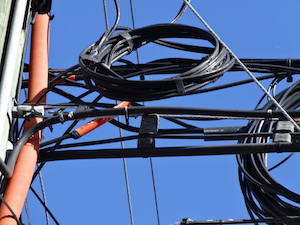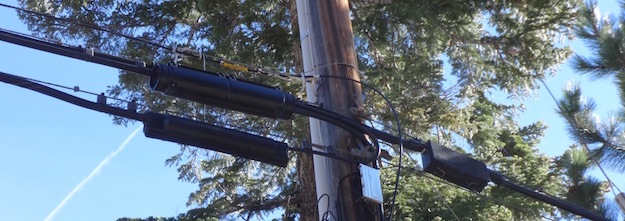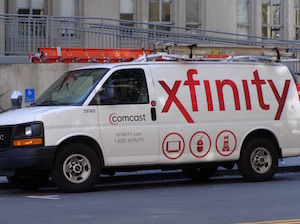Comcast uses monopoly muscle to claw back profits from cord cutters
![Kremlin.ru [CC BY 3.0 (https://creativecommons.org/licenses/by/3.0) or CC BY 4.0 (https://creativecommons.org/licenses/by/4.0)], via Wikimedia Commons](https://www.tellusventure.com/images/2016/12/putin_arm_wrestles.jpg)
Odd. He always seems to win.
Comcast’s operating profit drops by $5.50 every time a customer cancels bundled television service and goes with Internet service alone. That’s according to a story by Daniel Frankel in Fierce Wireless about some back of the envelope modelling done by Wall Street analyst Craig Moffett. His conclusion is that bundling prevents cord cutting, and I think he’s right. But another way of looking at it is that Comcast – and its mega-cable brethren – are using their monopoly control of high speed Internet service to extract significant rents – profits beyond what a competitive market would allow – from consumers.… More




![By Alvandria [CC BY-SA 4.0 (https://creativecommons.org/licenses/by-sa/4.0)], via Wikimedia Commons](https://www.tellusventure.com/images/2016/11/alphabet_chart.jpg)


![By Nandaro (Own work) [CC BY-SA 3.0 (https://creativecommons.org/licenses/by-sa/3.0)], via Wikimedia Commons](https://www.tellusventure.com/images/2016/11/mammoth_lakes.jpg)

![By Frank Schulenburg (Own work) [CC BY-SA 4.0 (https://creativecommons.org/licenses/by-sa/4.0)], via Wikimedia Commons](https://www.tellusventure.com/images/2016/11/calaveras_jumping_frog.jpg)